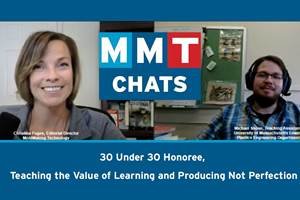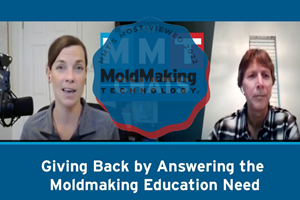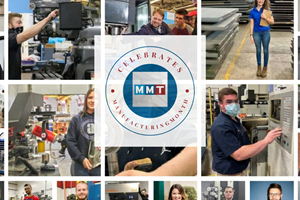Applied Manufacturing Technology Center (AMTC)
The AMTC not only trains those entering the workforce - it upgrades workers' skills through hands-on teaching.
Last August the Applied Manufacturing Technology Center (AMTC) was established in the Midwest. It is actually the combination of the following programs that have been available at Moraine Park Technical College (West Bend, WI) - Tool and Die Making, Tool and Die Design and CNC Programmer Operator - each of which is two years long. By combining the programs, CNC instructor James Hokenson hopes to secure the future of the manufacturing industry in somewhat troubled economic times.
Hokenson explains that the AMTC is "very much a part of the college," with a focus on custom training workshops in addition to regular full-time programs. The three programs are somewhat related in the aspect of the support classes, Hokenson notes, while the core classes are program-specific. The AMTC offers both day and night classes, and Hokenson estimates that approximately 50 percent of the students attend school full-time and work, while the remainder work and fit classes in around their work schedule. Upon completion of the two-year Tool and Die program or the CNC program, the students receive a diploma. Students completing the Tool and Die Design program receive an Associate's degree.
The 42,500-square-foot center - 6,000 of which comprise the CNC lab - features 14 CNC machines in the CNC lab and six in the Tool and Die facility as well as four EDMs. "It is truly a state-of-the-art facility that stands over and above most colleges or even businesses, for that matter," Hokenson says. "This technology is the best part of the program - seeing students come in that have little or no experience in the area they are pursuing and by the time they are done with the program they can create things on their own, current with industry standards."
Course Curriculum
To set up the course offerings for the AMTC, the staff sought outside assistance as it had when Moraine Park Technical College was founded. "A steering committee was developed from local industry representatives," Hokenson says. "They were asked what sort of training their current employees needed and what their future needs would be. We took that information and created the courses from that. There is an advisory board for each of the three program areas as well as a steering committee for the AMTC itself. We really tailor our programs to industry needs."
Additionally, nearly all Tool and Die Making graduates will receive an apprenticeship. "If they don't, it is primarily because they switched programs or chose a different career path," Hokenson says. "We do not have a CNC apprenticeship program. We are working with the state apprenticeship board to get this implemented. However, there is an EDM apprenticeship program. The students usually receive an apprenticeship at the place of employment they are working at while in school."
According to Hokenson, the program as a whole has been widely accepted by the staff and the students. "The students think it's great that they get to learn on the cutting edge of current industry technology," he notes. Salvador Ganado, currently enrolled at AMTA, couldn't agree more. "The teachers are focused and oriented toward production techniques that are most efficient, like short cycle times and macro programming," he notes. "I am truly happy with the school; it's the best as far as learning in manufacturing and CNC fields. There are so many opportunities to work with a variety of equipment. I am working with wire EDM - something I've never done before."
An industry veteran with more than two decades of experience under his belt, student Mark Flitsch wanted to broaden his horizons. "I have been employed by Leeson Electric (Grafton, WI) for more than 20 years as a moldmaker/machinist," Flitsch says. "I wanted to make myself more valuable to my employer and keep up with technology. Basically, I feel that the AMTC taught me a new career in CNC."
Former student Nathan Feutz also cites technology as his main reason for attending the school last year. "I learned some very advanced technologies like high-speed machining," he recalls. "It was almost all hands-on experience - very little textbook learning. We referred to textbooks for assistance in programming and things of that nature." He credits the school with supplying him the experience he needed to get hired at a local laser shop. "Without the CNC programming, I probably wouldn't have gotten hired," he says.
Industry Support
The first program - Tool and Die Making - was started way back in 1972, Hokenson says. Then, the Tool and Die Design program was implemented in 1995, followed by the CNC program, which began in 1999. "There was a tremendous amount of industry support and guidance from instructors in the tool and die program and the tool and die design program," Hokenson states. "The whole purpose of the AMTC is to serve industry as an incumbent worker-training site and for upgrading workers' skills through hands-on applied learning."
The AMTC's funding is split 50/50 between industry and taxpayer contributions through special legislation. "The AMTC also works with partners, meaning that either hardware or software is drastically discounted, donated or consigned," Hokenson explains. "Industry can, in turn, utilize the facility to host user groups, seminars, specialty workshops, sales seminars or in the case of the CNC program, utilize the lab to demonstrate the consigned equipment to potential customers. Some of the companies that have developed partnerships with us are Iverson/Hardinge, Schweda Machinery Sales/Mitsubishi EDM and Brown and Sharpe. "The facility also may be utilized to do specific training for the partners' customers," Hokenson continues. "Therefore, where once the customer had to be sent out of state, now that customer can receive local training - creating the least amount of disruption in their personal lives."
It is for these very reasons that CDM Tool Corp. (Hartford, WI) takes advantage of AMTC's facilities. "We have used the school many times now for certain types of meetings, employee training, things of that nature," says President Brian Priestaf. "Whatever we need is at our disposal. Overall, the school presents an excellent opportunity for people in our area to have an avenue of learning. It's a real effort by industry and academia to work together very closely and hopefully stay on the forward edge of working together to try and train people."
Mike Staral, vice president of manufacturing for Jackson, WI-based Willer Tool Corp., concurs. "People need to be more prepared and more training is needed before they enter this industry," he explains. "They need to be ready to go on the new CNCs with the latest and greatest controls. The school and instructors are doing a wonderful job.
"We are always hiring students from the school, at least one or two a year," Staral continues. "That's ongoing for us. We also plan on using the AMTC to train our existing workforce as far as updating them on the latest technology. This program is a long-term deal for us - something that the area really needed."
Kenneth Heins, president of Germantown, WI-based KLH Industries, Inc., also hires many students from AMTC. "These students have the unique opportunity to learn skill sets using some of the most modern equipment and knowledgeable instructors located in southeastern Wisconsin," Heins states. "When the original group of advisors at Moraine Park Technical College (MPTC) began meeting in the mid 90s, it was their desire to see students make lateral moves into the industry they pursued and not have to play catch up because their training was done with old, outdated equipment and curriculums. The MPTC listened to industry and began a partnership - doubling the program size, completely rewriting the curriculum and assisting in purchasing the latest technology for their labs.
"As education and industry continued to work together toward providing a labor force to support a strong manufacturing base, it became obvious that there was a need to respond quicker to technology changes and have a plan to respond to employers' changing training needs," Heins continues. "The AMTC addresses this need. With government, education and industry working together, the AMTC provides a nontraditional approach to maintaining a highly skilled workforce in a very competitive market. At KLH we use the program to learn new skills and upgrade old ones and we plan to continue taking advantage of this tremendous resource located right in our backyard."
Besides helping out with the advisory committee, local moldmakers and related industry businesses also occasionally donate discarded steel that the school can use for projects, re-ground tooling and holders for the CNC machines - as well as extending the school an open invitation to tour their facilities with the students. "As for any national assistance, it's hard to say, we're still pretty much dealing with local organizations, but we are working to get more exposure and create a bigger draw," Hokenson notes. "The biggest benefit that the moldmaking companies receive is the student. The students are exposed to real-world techniques and can implement them immediately when starting full-time employment with a minimal learning curve."
The Road Ahead
The program's immediate goals include increasing enrollment and getting recognized as an "applied technology information resource," Hokenson notes. As for the long haul, Hokenson would like to expand the CNC wing so the Tool and Die Making program can be housed there as well. "This would create a closed loop and better simulate an actual shop environment, again keeping it real," Hokenson explains. "The second year design students will be working with the second year tool and die making students who in turn will coordinate work with the second year CNC students.
"We also would like to have nearly every software and control type made available for training," he continues. "If we, the staff instructors, are not proficient at these things, then we will get the OEMs to do the training in our facility."
The AMTC also will continue obtaining some support from the state as well as any donations. "Inevitably the facility will be self-supporting," Hokenson notes. "We will do research and development of software, tooling and machine tools. In turn, the suppliers of these will drastically discount costs or place equipment and/or software. The custom-designed classes and workshops will become the major source of revenue for operating the AMTC.
"It's a hard road to travel," Hokenson admits. "You have to get in touch with local industry and determine their needs; develop relationships with nearly every OEM and supplier in your area; and explain what the school's vision is and sell yourself, the school and the rest of the staff. I want to make it known that this college is doing everything it can to keep manufacturing alive."
Related Content
ICYMI, MMT Chats: 30 Under 30 Honoree, Plastics Engineering TA Teaches Value of Learning and Producing Not Perfection
MoldMaking Technology Editorial Director Christina Fuges brings on UMass Lowell Plastics Engineering Teaching Assistant Michael Shone as a guest for this MMT Chat to discuss moldmaking through the lens of academia. This episode is brought to you by ISCAR with New Ideas for Machining Intelligently.
Read MoreTackling a Mold Designer Shortage
Survey findings reveal a shortage of skilled mold designers and engineers in the moldmaking community, calling for intervention through educational programs and exploration of training alternatives while seeking input from those who have addressed the issue successfully.
Read MoreMMT Chats: Giving Back by Answering the Moldmaking Education Need
MoldMaking Technology Editorial Director Christina Fuges checks in with Bruce Cateon, an executive advisor at OASIC Consulting. Bruce started out in moldmaking, eventually becoming an industry consultant and taking time to work on his passion project the “Injection Mold Design Handbook” as a way of giving back to the industry that has given him so much. This episode is brought to you by ISCAR with New Ideas for Machining Intelligently.
Read More2021 30 Under 30 Honors Program: Mentoring in the Next-Generation of Moldmaking Professionals
Young professionals are vital to the moldmaking industry, and it is important to acknowledge those making strides in shaping the industry's future. MoldMaking Technology recognizes the industry's young talent through its 30 Under 30 Honors Program.
Read MoreRead Next
How to Use Strategic Planning Tools, Data to Manage the Human Side of Business
Q&A with Marion Wells, MMT EAB member and founder of Human Asset Management.
Read MoreAre You a Moldmaker Considering 3D Printing? Consider the 3D Printing Workshop at NPE2024
Presentations will cover 3D printing for mold tooling, material innovation, product development, bridge production and full-scale, high-volume additive manufacturing.
Read MoreHow to Use Continuing Education to Remain Competitive in Moldmaking
Continued training helps moldmakers make tooling decisions and properly use the latest cutting tool to efficiently machine high-quality molds.
Read More



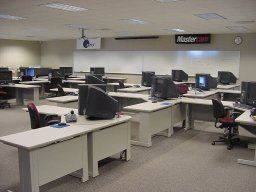
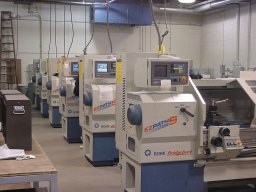











_300x250 4.png;maxWidth=300;quality=90)

.jpg;maxWidth=300;quality=90)




